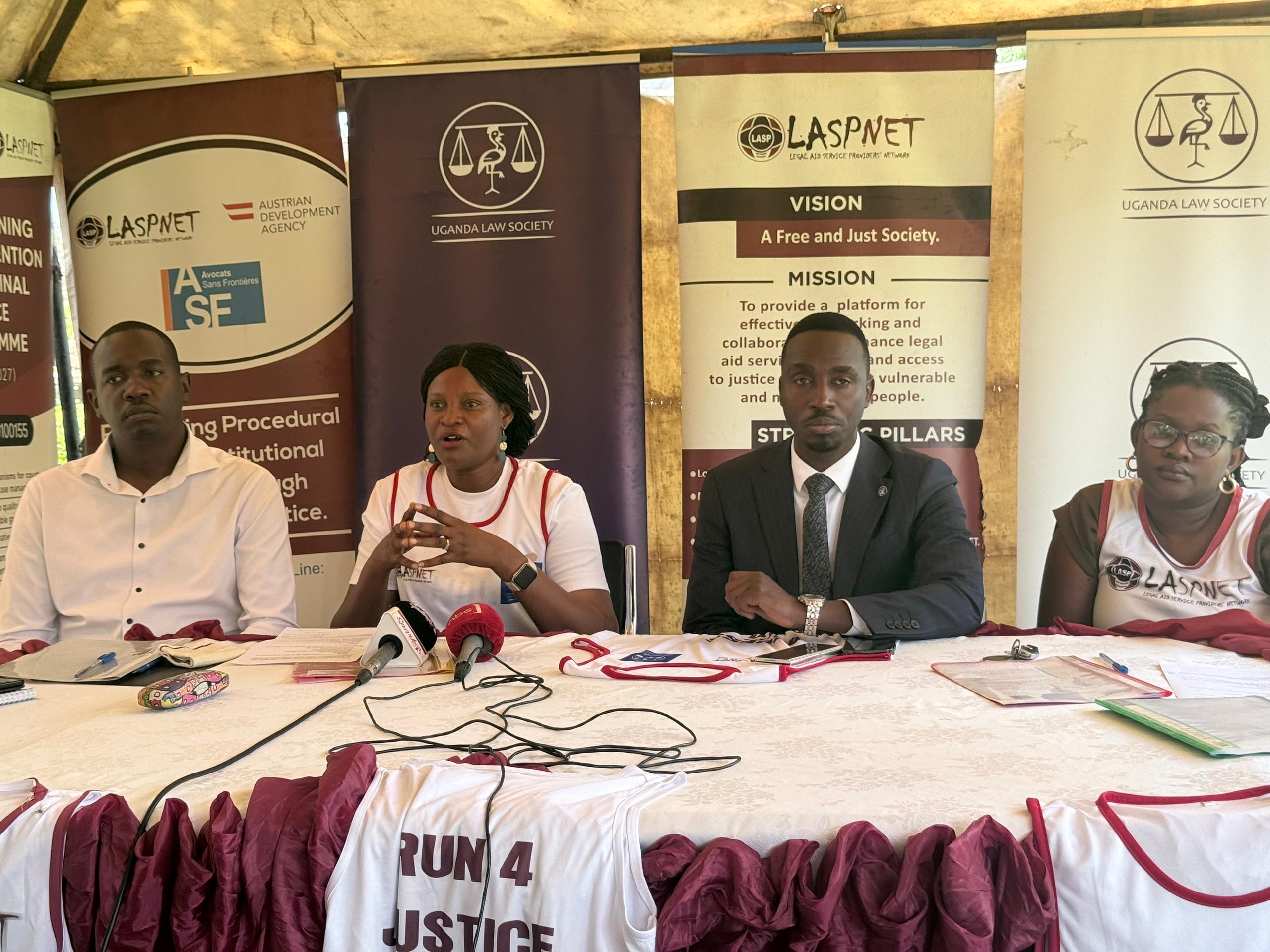Legal minds have warned that Uganda’s justice system is increasingly failing the country’s poorest citizens, citing high legal costs, rights violations at police stations, severe court delays and the absence of a national legal aid law.
The warning was issued by the Legal Aid Service Providers Network (LASPNET) and the Uganda Law Society (ULS), both of which say millions of Ugandans are being denied meaningful access to justice despite constitutional guarantees.
Speaking to journalists in Kampala , LASPNET Executive Director Dr. Sylvia Namukasa said Uganda’s legal system remains inaccessible to vulnerable citizens despite having strong constitutional provisions, thousands of legal professionals, and established justice sector institutions.
She said the long-awaited Legal Aid Act, which would guarantee state-funded legal representation for the poor, remains stalled, leaving the majority of Ugandans without support.
“The laws that make it easier for the most vulnerable to access justice are still lacking,” Dr. Namukasa said.
“Government must urgently prioritise a national legal aid law.”
Dr. Namukasa criticised routine human rights violations at police stations, including suspects being detained beyond the legal 48-hour limit and citizens being forced to make payments to access services.
“People go into police and are made to record statements without representation. Many spend weeks in cells before appearing before a judicial officer,” she said.
She added that high bail fees, costly court processes and corruption continue to block poor Ugandans from seeking justice, further eroding public trust in the system.
LASPNET also raised alarms over severe delays in the courts, with some criminal trials taking up to 10–12 years to conclude even for minor cases.
Uganda’s prisons, she noted, now hold more than 70,000 inmates, despite being built for only 20,000, a crisis driven by slow case processing and criminalisation of poverty.
Dr. Namukasa called for expanded use of mediation, diversion and paralegal services, especially at police stations, to reduce court inflow and ease prison congestion.
“Having a lawyer or paralegal at the earliest entry point reduces the cost of justice and ensures quick access,” she said.
She added that LASPNET’s upcoming Run for Justice campaign will spotlight the barriers citizens face and push for better planning, funding and policy reforms.
“When justice is costly and not readily available, people lose confidence in the system,” she said. “Justice must be a national priority, just like health and education.”
Uganda Law Society Deputy President Anthony Asiimwe echoed the concerns, warning that the constitutional right to a fair hearing is being undermined by high legal costs and lack of a national legal aid scheme.
“Out of 10 Ugandans, only two can afford services of a lawyer,” Asiimwe said.
“People think lawyers are only after money, but we have a statutory mandate to help the public.”
He said many Ugandans enter the justice system without the knowledge or guidance needed to resolve disputes early, causing avoidable congestion in courts and prisons.
Asiimwe urged the judiciary to engage more with citizens, saying many Ugandans do not understand the difference between lawyers and judicial officers.
“People cannot appreciate the difference between lawyers and the judiciary. The courts need to hear what the public is saying,” he said.
He added that some litigants leave the justice system “poorer and more distressed,” questioning whether courts are fulfilling their purpose.
Asiimwe warned against “privatising justice” by making it accessible only to those who can pay.
“If I do not have money, I should not be blocked from going to court,” he said.
He urged justice sector institutions—including the judiciary, police and prosecution—to work more closely with legal aid providers.
“Justice is an essential service. Let us bring it closer to the people and make access to justice a reality,” he said.


